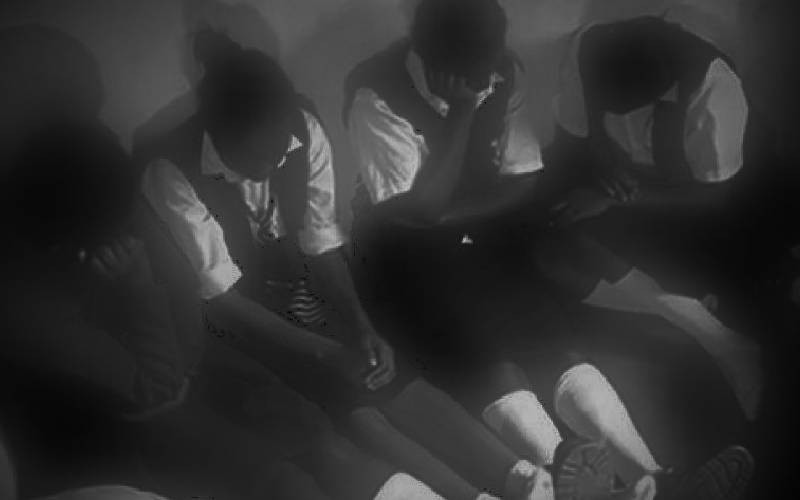
The International Children's Peace Prize winner simply known as Kesz had this to say of street families: “I grew up on a dumpsite where nothing is clean. My family had adopted the living style of garbage collectors. Life was not fair at all since sewage canals were our bathing and relaxing zones."
Today, millions of children are living hopeless lives in the streets of major towns across the country. They live for today with no idea what tomorrow has for them or whether the next day will find them alive or dead.
Most of them have turned into beggars while others have been cast into the world of crime. They have joined gangs and drug cartels while others have gone on to abuse narcotics. Future generations are therefore imperiled by these vices.
Within their own little world, they struggle for survival without much success - many end up strangled to death by colleagues.
Their numbers are increasing rapidly in proportion to increased easy access to drugs, growing immorality, peer pressure, poverty and child abuse.
Statistics by Consortium of Street Children show that in 1999, the number of street children was estimated at 50,000 in Nairobi alone. In 2007, it was estimated that between 250,000 and 300,000 children were living on the streets of Kenyan towns.
We often hear of street children being abused, yet it is the quest for a shilling or two that has seen some of them willingly subject themselves to sexual abuse.
Sexual abusers have a tendency to turn to children who are less likely to defend themselves. Charges against sexual offenders are hard to prove due to the victim’s fear that if they expose the offenders, they might get into more trouble.
Lack of adequate information and awareness also plays a part. The affluent are not all about glitter and gold. Some of them are suspected drug dealers who exploit street children to transport drugs across the country for a small fee.
Ever wondered what the "chokora", as street children are more commonly known, carry in their sacks? And why is it that if anybody touches these sacks they become very aggressive? Well, your guess is as good as mine.
Recently, there was an incident in Brazil where street families were eliminated during a clean-up in preparation for the Rio Olympics.
Society needs to come to terms with the fact that street children are human beings just like the rest of us. They are entitled to rights and freedoms like the children we have at home.
They have the right to a nationality, preservation of their identities, good shelter, medical services and high standards of living.
While there is much work being done to improve their living standards, for instance, charitable organisations providing food, much more needs to be addressed.
Stay informed. Subscribe to our newsletter
The problems facing street children need to be tackled at their core. For example, child abuse at home needs to eradicated. Child labour needs to be stopped and poverty needs to be curbed.
The Government is already playing a big role in helping these children by setting aside Sh4 million day to day assistance. As individuals and society at large, we need to take initiatives to help that child on the street get a better life.
We are all encouraged to report to the police neighbours, relatives or friends any time they are seen abusing children or dependents.
By so doing, you could be saving a child from life on the streets. Street children are not punching bags or sexual toys at anybody’s disposal.
-Lynn Kyalo, Strathmore University, Nairobi
 The Standard Group Plc is a
multi-media organization with investments in media platforms spanning newspaper
print operations, television, radio broadcasting, digital and online services. The
Standard Group is recognized as a leading multi-media house in Kenya with a key
influence in matters of national and international interest.
The Standard Group Plc is a
multi-media organization with investments in media platforms spanning newspaper
print operations, television, radio broadcasting, digital and online services. The
Standard Group is recognized as a leading multi-media house in Kenya with a key
influence in matters of national and international interest.
 The Standard Group Plc is a
multi-media organization with investments in media platforms spanning newspaper
print operations, television, radio broadcasting, digital and online services. The
Standard Group is recognized as a leading multi-media house in Kenya with a key
influence in matters of national and international interest.
The Standard Group Plc is a
multi-media organization with investments in media platforms spanning newspaper
print operations, television, radio broadcasting, digital and online services. The
Standard Group is recognized as a leading multi-media house in Kenya with a key
influence in matters of national and international interest.









